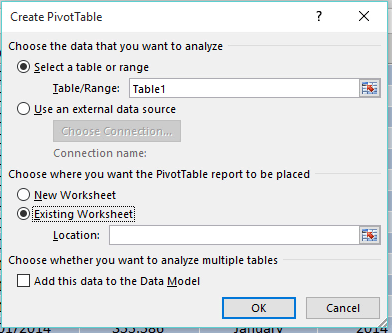

If those tools aren’t available in your version of Excel, follow the instructions below. If you have Excel 2010 or later, use Get & Transform, or Power Query, to quickly “unpivot” the data. The steps below explain how to do this quickly - you don’t have to manually rearrange the data!īecause the original data, with 12 columns for months, looks almost like a completed pivot table, we want to “unpivot” the data, or “normalize” it. This process will “normalize data” for Excel pivot table setup, and makes it easier to work with.

Adjacent columns will show the product name and month. Instead of multiple columns with sales amounts, rearrange your data into a single column of amounts.

Instead of leaving the data like this, see how to normalize data for Excel pivot table setup. If your Excel data is in monthly columns, like the worksheet shown below, you’ll have trouble setting up a flexible pivot table.


 0 kommentar(er)
0 kommentar(er)
